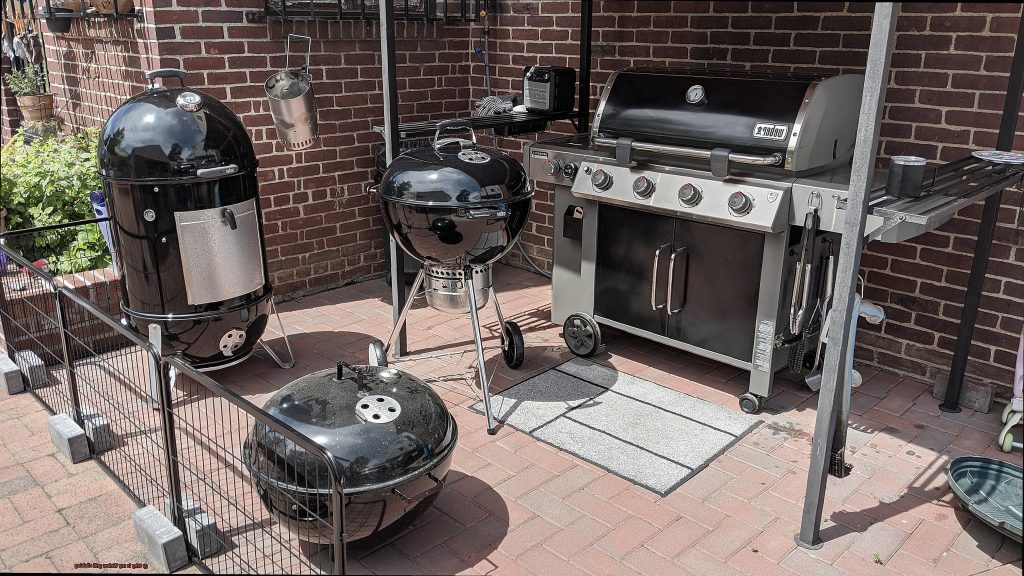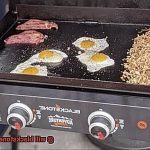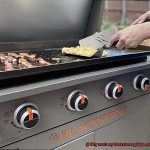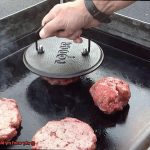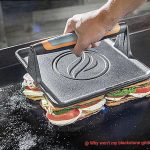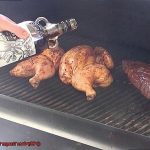Grilling is a thrilling adventure for food enthusiasts. The sizzling sounds and mouth-watering aroma of grilled food can make your taste buds dance with joy. However, what if you hear an unexpected clicking sound coming from your beloved Weber grill? That’s enough to put anyone on edge.
If you’re scratching your head wondering why your Weber grill is clicking, it’s crucial to know that this could be a sign of trouble lurking beneath the surface. A clicking Weber grill may indicate a gas leak, a problematic regulator, or even a clogged burner tube. Ignoring this issue could lead to hazardous consequences such as fires, explosions or burns.
But don’t fret. In this blog post, we’ll dive into the reasons behind your Weber grill’s clicks and guide you through the steps needed to fix the problem. Whether you’re a seasoned griller or just starting out, our tips will help ensure that your grill is safe to use so that you can enjoy delicious meals with peace of mind. So keep reading to learn more about what causes a clicking Weber grill and how to resolve it.
Contents
What is the Weber Grill Clicking Sound?
This common problem can be caused by a variety of factors, but with a little troubleshooting, you can get your grill back to working order in no time.
One potential culprit of the clicking sound is a faulty igniter. The igniter creates the spark that lights the gas in the burner tubes, and over time it can become dirty or damaged, causing it to malfunction and produce a frustrating clicking sound instead of a spark. If this is the case, you may need to replace the battery or clean the electrode.
Another possible cause of the clicking sound is blocked burner tubes. Grease and debris can clog up the tubes, preventing gas from flowing through them properly. When this happens, gas builds up and ignites with a popping or clicking sound instead of a steady flame. To fix this issue, use a wire brush or other cleaning tool to clear out any blockages.
Low gas pressure can also cause the clicking sound. If there’s not enough gas flowing through the grill, it won’t ignite properly. To fix this issue, check your propane tank and make sure it’s full and properly connected to your grill.
Lastly, if none of these solutions work, it may be due to a faulty regulator. The regulator controls the flow of gas from the propane tank to your grill and can cause a clicking sound if there’s an issue. In this case, it’s best to have it replaced by a professional.
It’s important to note that while the clicking sound is frustrating, it doesn’t necessarily mean there’s a serious problem with your grill. However, if you notice any other issues such as uneven heating or flames, it may be worth having your grill inspected by a professional to ensure everything is functioning correctly.
Possible Causes of the Clicking Sound
This is a common issue that can be easily fixed. As an expert on the matter, let me take you through the possible causes of the clicking sound and how to troubleshoot them.
Firstly, a dirty igniter electrode is a common culprit behind the never-ending clicking. The electrode produces a spark to ignite the gas, but if it’s dirty, it won’t generate the spark causing a continuous clicking.
Another cause could be low gas pressure. If there isn’t enough gas flowing into the grill, it can cause the igniter to continuously attempt to light the grill, resulting in persistent clicking.
A damaged igniter wire can also lead to continuous clicking. The wire connects the electrode to the ignition module, and if it’s damaged, it won’t transmit the spark from the module to the electrode, therefore causing the grill to incessantly click.
When water enters the ignition system, it can cause a short circuit and result in a consistent clicking sound or prevent your grill from lighting altogether.
Lastly, if none of these causes are responsible for the clicking sound, it could be a faulty ignition module. The ignition module is responsible for sending an electric signal to produce a spark in the electrode.
To sum up, if you have attempted cleaning the igniter electrode, checking for low gas pressure, inspecting for a damaged igniter wire, and ensuring that your ignition system is dry but the clicking sound persists, then it’s time to call in a professional. A qualified technician will be able to diagnose and resolve the problem so that you can enjoy grilling your favorite foods without any interruptions.
Ignition System Problems
First up, let’s talk about batteries. If the battery in your electronic igniter is dead or low, it won’t have enough power to spark and ignite the gas. The solution? Simply replace the battery and your grill will be back to its fiery glory in no time.
Next, check your electrode. Over time, grease and debris can build up on the electrode, preventing it from producing a strong enough spark to ignite the gas. To fix this issue, either clean or replace the electrode.
Lastly, check your wiring. Loose or damaged wiring can disrupt the electrical current flow and cause your grill to click without igniting. Tightening any loose connections or replacing damaged wiring should solve this problem.
Grease and Debris Buildup on Burner Tubes
Grease and debris buildup on burner tubes is the most common cause of this annoyance.
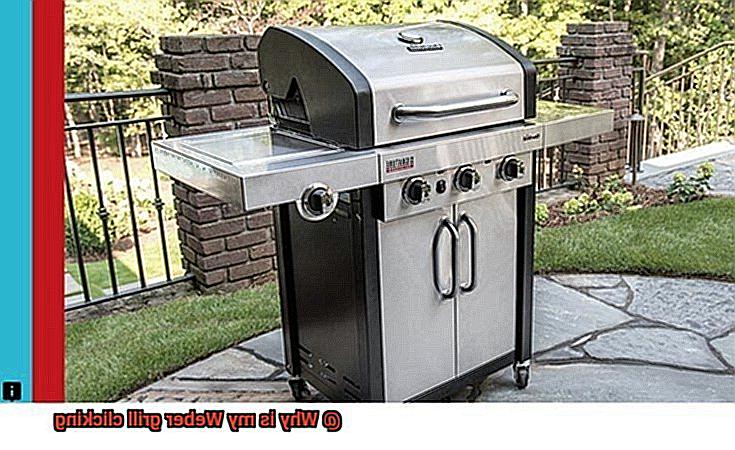
Over time, grease and food particles accumulate on the burner tubes, clogging the flow of gas and air to the burners. This leads to an erratic flame and those dreaded clicks. But worry not, dear readers, for I am here to share my expertise on how to keep your Weber grill in pristine condition.
Regular cleaning is the key to preventing this pesky problem. Follow these steps to keep your grill in tip-top shape:
- Turn off your propane tank and disconnect it from the grill.
- Remove the cooking grates and heat deflectors to access the burners.
- Use a stiff wire brush or scraper to eliminate any debris or grease buildup from the burner tubes.
- For a thorough cleaning, you can use a warm water and dish soap solution.
- After cleaning, inspect the burner tubes for any damage or corrosion. Replace them if you notice any cracks or holes to ensure proper gas flow and prevent further damage.
In addition, clean your grill after each use with a grill brush to prevent grease and debris buildup. Remember to empty the grease tray regularly.
By following these straightforward steps, you can avoid grease and debris buildup on burner tubes and never again hear that annoying clicking sound. Plus, regular maintenance can extend the life of your Weber grill, ensuring that it serves you well for years to come.
Low Gas Pressure
Well, the culprit could be low gas pressure. As an expert in this field, I’m here to help you troubleshoot this issue and get back to grilling with ease.
One of the most common causes of low gas pressure is a propane tank that’s low on fuel or has been sitting in the sun for too long. This can cause a drop in pressure, which in turn can lead to your burners clicking. To fix this issue, simply replace your propane tank or move it to a cooler area.
Another possible cause for low gas pressure is a clogged burner or gas line. Grease and debris can accumulate over time, obstructing the flow of gas and causing your burners to click. To remedy this, take apart your grill and give your burners and gas lines a thorough cleaning. Trust me, it’s well worth the effort.
Finally, a faulty regulator can also be to blame for low gas pressure. The regulator controls the amount of gas flowing into your grill, and if it’s not functioning properly, it can restrict the flow of gas and cause low pressure. In this case, replacing the regulator is necessary.
To summarize, here are three common causes and solutions for low gas pressure:
- Replace or relocate your propane tank if it’s low on fuel or sitting in direct sunlight.
- Clean your burners and gas lines to remove any debris or grease buildup.
- Replace a faulty regulator to restore proper gas flow.
Faulty Regulator
Attention grill masters. Are you tired of your Weber grill constantly clicking and failing to ignite? The culprit could be a faulty regulator. This component controls the flow of gas from the propane tank to the burners, and if it’s not functioning correctly, your grill won’t produce enough heat to cook your food. But fear not. With a few simple steps, you can fix the issue and get back to grilling up a storm.
One telltale sign of a faulty regulator is a low flame or no flame at all. This happens because the regulator may be limiting the flow of gas, causing the burners to not receive enough fuel to ignite properly. You may also notice that your grill is not getting as hot as it should be, which can be frustrating when you’re trying to cook a meal quickly.
To fix a faulty regulator, you’ll need to replace it with a new one. But before doing so, it’s essential to check for any leaks in the gas lines or connections. A gas leak can be dangerous and lead to a fire or explosion, so safety should always come first. To check for leaks, mix some soap and water in a spray bottle, and then spray it on the gas lines and connections while the grill is in use. If you see bubbles forming, it’s time to turn off the grill immediately and fix the issue before proceeding with replacing the regulator.
Assuming there are no leaks detected, you can now replace the faulty regulator. Start by turning off and disconnecting the propane tank from the grill. Then, remove the old regulator from the grill and attach the new one in its place. Finally, reconnect the propane tank, and voila. Your Weber grill should now be working like a charm.
How to Diagnose and Fix the Problem
There are several steps you can take to diagnose and fix the issue yourself.
Step 1: Check the Ignition System
The ignition system is the most common culprit of a clicking Weber grill. A weak or dead battery, loose wiring, or damaged connections can prevent the igniter from sparking properly, leading to clicking without ignition. Start by turning off the gas supply and removing the grates and flavorizer bars. Then, locate the ignition module and check for any visible damage or loose connections. If you notice any issues, such as a broken wire or loose connection, you may need to replace the ignition module or repair the damaged component.
Step 2: Inspect the Gas Supply
If the ignition system is functioning properly, move on to inspecting the gas supply. Make sure that your propane or natural gas tank has enough fuel and that the valve is turned on fully. If you’re using propane, try disconnecting and reconnecting the tank to ensure a proper seal. You should also check the gas hose for any signs of damage or wear, and replace it if necessary.
Step 3: Clean the Burner Tube and Venturi
A clogged burner tube or venturi can also cause a clicking Weber grill. These parts can become blocked by dirt, grease, or other debris over time, which can prevent gas from flowing properly and lead to clicking. To fix this issue, remove the burner tube and venturi and clean them thoroughly with a wire brush or other cleaning tool.
Step 4: Check the Propane Tank
If none of these solutions work, it may be time to check your propane tank itself. Low fuel levels or a damaged valve can prevent it from providing enough gas to ignite the grill properly. To check for this issue, try using a different propane tank or have your current tank inspected by a professional.
Step 5: Seek Professional Assistance
If you have tried all of these solutions and the issue persists, it may be time to call in a professional technician. They can diagnose and repair more complex issues, such as a faulty regulator or gas valve.
kOltTdfKIHU” >
Conclusion
In conclusion, a clicking Weber grill can be a real buzzkill for any grill master. But don’t let it get you down. It’s crucial to recognize that this issue could indicate more significant problems, such as gas leaks or faulty regulators, which can lead to hazardous consequences. So, it’s essential to troubleshoot the problem and fix it promptly.
As an expert in this field, I’ve shared several possible causes of a clicking Weber grill. These include a dirty igniter electrode, low gas pressure, grease and debris buildup on burner tubes, and faulty regulators. By following the steps outlined in this article, you can diagnose and fix the problem yourself.
But prevention is always better than cure. Regular maintenance of your Weber grill can prevent issues like these from arising in the first place. A simple cleaning after each use and regular inspections for damage or wear can extend its lifespan and ensure that it functions correctly.

